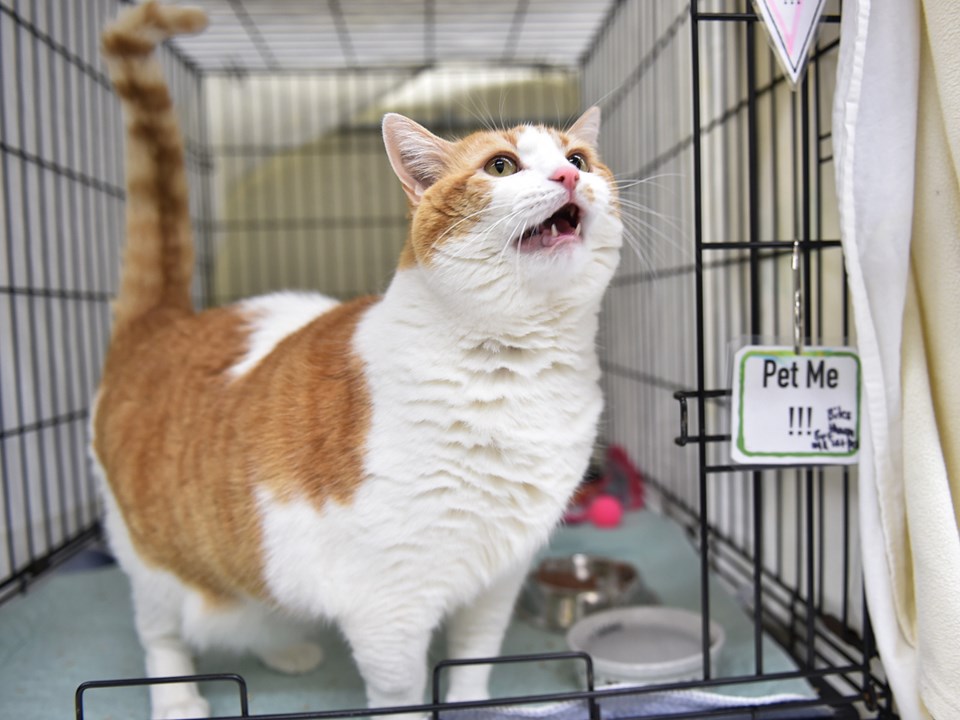Daisy is definitely not a happy cat. She is overweight, bites anyone who tries to pick her up and is peeing all over the place.
The staff and volunteers at Daisy’s new home, the �鶹��ýӳ��Orphan Kitten Rescue Association, don’t blame her. They say Daisy’s problems all trace back to being declawed.
“It’s like you have no fingers at the end,” Maria Soroski, VOKRA’s cofounder, says about what’s it’s like for a cat whose claws have been removed. “It’s hard for [declawed cats] to step into a litter box or anything that’s rough so they pee around the box.”
Psychologically, it’s not much better, she says.
“When claws are removed it makes them defenceless and they don’t interact properly. They’re upset so they’ll often start biting as a defence. It also gives them a lot of anxiety. Often they begin over-eating [as a coping mechanism] and get fat.”
Daisy was first surrendered to the Surrey pound by her owners, who were frustrated by the tabby’s unwillingness to use the litter and her foul temper. The Surrey pound found her a home but the new owner also couldn’t cope with Daisy’s refusal to use the kitty litter and her stress eating.
Soroski says VOKRA is committed to working with Daisy on these issues. They will give her soft, sandy kitty litter and try to rehabilitate her.
But they’d like to stop future Daisies from having such issues. The association is echoing the the practice in the province.
VOKRA quotes veterinarian Christina Schelling on its website. “Declawing is not like a manicure,” the vet says. “It is serious surgery. Your cat's claw is not a toenail. It is actually closely adhered to the bone. So closely adhered that to remove the claw, the last bone of your cat's claw has to be removed."
There are alternatives, Soroski says. Claws can be trimmed or owners can also ask a vet to attach “soft claws.” They are little caps glued onto the ends of each claw and will last for a few months. Resources are also available to discourage cats from clawing at furniture.
Older people who get their cats declawed because they are worried about getting an infection after being scratched should reconsider having a cat, Soroski said.
Last March, the Canadian Veterinary Medical Association of Veterinarian Medicine sent out a notice to all of its members saying that the practice causes unnecessary suffering.
"The CVMA views this surgery as unacceptable as it offers no advantage to the feline and the lack of scientific evidence leaves us unable to predict the likelihood of long-term behavioural and physical negative side-effects,” said Dr. Troy Bourque, the association's president.
The College of Veterinarians of British Columbia says that it is aware of people’s concerns but is not yet ready to make a decision on banning the practice. It says it is studying the issue.



